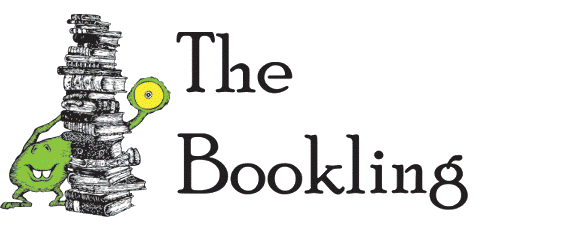It's BTT again.
Writing guides, grammar books, punctuation how-tos . . . do you read them? Not read them? How many writing books, grammar books, dictionaries–if any–do you have in your library?
Don't read them but do own a handful - although in the age of the internet I doubt that I'd ever buy more as I don't think I've looked at my real life dictionary/thesaurus in years. I do have a copy of Eats, Shoots and Leaves (a gift) but I've never read it as life always seems too short and my reading list too long. I believe somewhere in my shelves should be an illustrated children's book of grammar that I bought when doing my A-Level English course as somehow, when much younger, I managed to miss all the lessons in English that explained what all the terms actually mean (verb, adverb, etc)
I'm happy knowing that a sentence is structured in a certain way "because it is" though and I think my prolific reading as a child probably covered my knowledge gaps. My Grandmother was an English teacher and would correct our use of words if we were using them out of context and woe betide any grandchild who incorrectly applied a ' (your/you're, its'/it's). A classic conversational example, that I am sure any member of my extended family could quote, would be:
Me: "Granny, can we go for a swim?"
Her: "I don't know - can you?"
Me: *sigh*
Me: "Granny, MAY we go for a swim?"
Her: "Yes."
So in answer, (as I seem to be dangerously veering off-topic) I don't use the books I have and only have a faint grasp of the actual "laws" behind grammar and punctuation but as I seem to have absorbed rules via osmosis I get along OK.
Hrmmm. Re-reading this post, it's clear that I don't often use the few punctuation rules I do know when writing this blog but I think I'll live. :D

9 comments:
I must confess I have spent time in recent years learning the actual rules, simply so I can explain them to others.
It's one thing to know the rules (what's a dangling participle etc - and yes, I just wanted to use that term!) but quite another to try and explain why a sentence works one way, but not another.
As someone who edits other's work, it's really handy to be able to explain what I'm doing!
Enjoyed reading your answers!
I wish I've someone at home who teaches English so that he/she can correct my grammar whenever I've used them wrongly. Nevertheless, dictionaries are a great help, and it's so convenient to check them online nowadays. ;)
I use those and encourage children to do so too!
My BTT post!
I remember a long time ago when I fell in love with the semi colon. It totally transformed how I wrote. I understood a whole new way to vary sentence length.
Lately I have fallen out of love with semi colon. It's not like we don't speak anymore, we are still friends. I still know how to use him well. But maybe I used up my semi colon allotment in high school and college. Now I have go to misusing commas and enjoying it.
Wait, am I going to hell for this??
I know where your grandmother was coming from, but you can really put children off with those hard and fast rules. The thing is, it seems to me, to know when it is really important to get the modals right (contracts and the like) rather than being pedantic about them in situations that don't matter so much.
Eats, Shoots and Leaves has come up so often today. It's a surprisingly entertaining read and I'd suggest bumping it to the top of your TBR pile.
The story about your grandmother reminded me of growing up in Newfoundland. I'm not sure where you're from or if you're familiar with the accent or not, but the way many talk and the "rules of English language" are often at odds with one another. For instance, whereas most of the country would say "I run to the store," Newfoundlanders might say "I runs to the store." That "s" though is a consistent rule for those people and so it's kind of stressful to hear teachers or other Canadians talk about the way they "should" talk. I wonder if the British come down on the Irish for talking "wrong."
Finally, you mentioned learning how to do the hyperlink. (a href="your link here") name of post (/a) Except you'll need to replace those brackets with the angular ones. Hope that helps!
I have had that same may/can conversation so many times.
Then one day I realized I was the one enforcing the use of may. sigh...i'm turning into my mother.
Wow - I don't think I have ever had so many comments. Thank you all for stopping by and sharing your thoughs! I now wish I knew more about rules as no sooner did I post this had my young niece called me to help her define verbs, etc for her English homework as their computer died. I had to dig out that dictionary I said I never used... Typical!
John - you are a hero. Thanks for the tip.
Post a Comment